Your heating system will be working harder than usual over the coming months, so you need to be prepared. What does it mean if, when you turn your thermostat to the heat setting for the first time in months, you notice a burning smell coming from the furnace? With winter approaching, the importance of Fall furnace maintenance cannot be overstated — and those strange smells coming from your unit may be a cry for help.
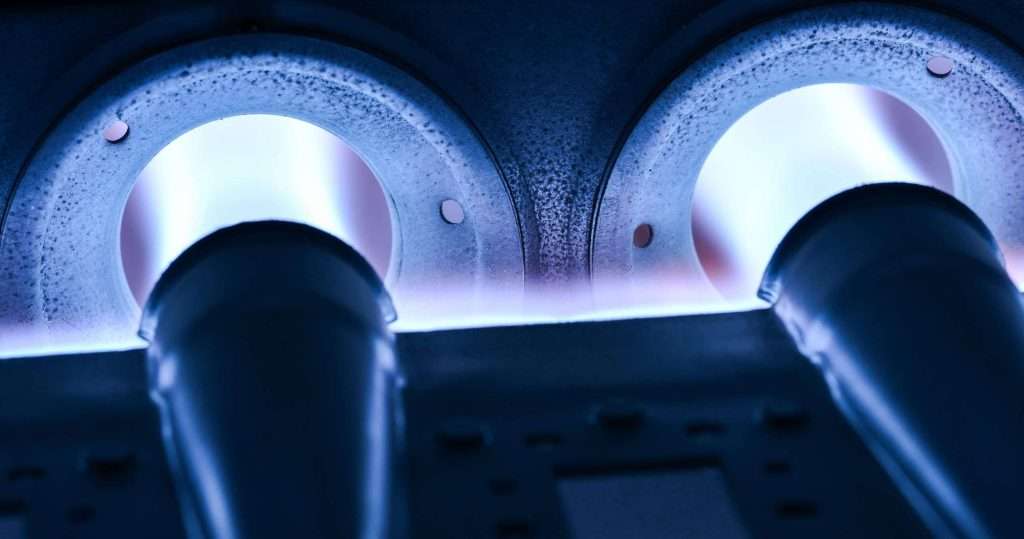
In the following article, we’ll consider possible causes of the burning smell from your furnace and how it might impact your health and comfort if not addressed. Think of this as a furnace maintenance checklist, complete with heating guidelines and safety tips. Our goal is to keep you feeling comfortable year-round, especially during the cold season.
So follow our advice (and your nose) and let’s get started.
Is a Burning Smell From My Heater Normal?
When you fire up your furnace for the first time after a long summer, a burning smell isn’t uncommon. This odor is typically caused by dust that has settled on the heating elements and in the ductwork during the off-season. As the system warms up, this dust burns off, creating a distinctly unpleasant smell.
However, while this initial burning odor is normal, it shouldn’t persist. Here’s what you need to know:
- The smell should dissipate within an hour or two of operation.
- If the odor lingers for more than a day, it may indicate a problem.
- Recurring burning smells throughout the heating season are not normal and require attention.
How Should a Furnace Smell?
Ideally, your furnace should operate without producing any noticeable odors. A properly running furnace will exhibit:
- Dust Burn-off: As mentioned, a light burning smell when first starting your furnace is normal and should dissipate quickly.
- No Smell: During regular operation, your furnace should not produce any odor.
Smells to Watch For
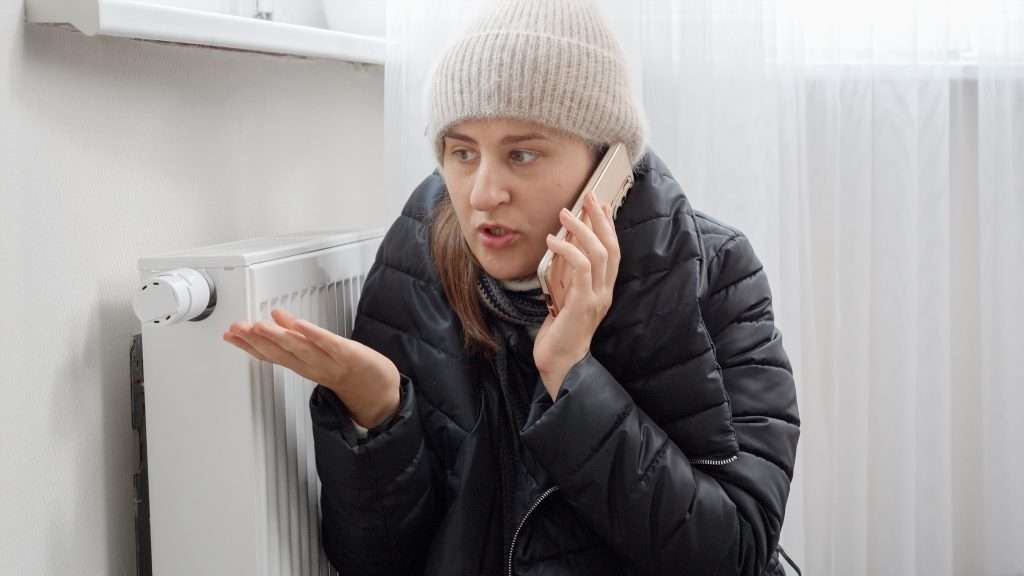
Your nose is a valuable tool in detecting potential furnace issues. If you’re unsure about a smell coming from your heating system, it’s always best to consult with an HVAC professional who can help you distinguish between the harmless dust burn-off and other, potentially hazardous smells.
Some of the smells that indicate it’s time for furnace maintenance service include:
Musty Smell
A damp, musty smell is normal when you turn on your furnace for the first time after it’s been dormant. However, if the smell lingers for more than a day or two, it could suggest mold or mildew growth in your ductwork, often due to moisture accumulation.
Electrical Burning Smell
A sharp, acrid smell might indicate overheated and overworked electrical components.
Burning Plastic Smell
If you smell burning plastic coming from your heating unit, shut it off immediately. This could indicate that an object is lodged somewhere in your heater, melting and emitting toxic fumes that can cause damage to your immune system and respiratory health.
Rotten Egg or Sulfur Smell
This unpleasant, sulfuric smell often indicates a natural gas leak. If you detect the smell of rotten eggs throughout your home, turn off your gas immediately and contact your utility provider.
Gunpowder Smell
Similar to electrical burning, gunpowder smells might signal that your furnace’s circuit board or fan motor has overheated.
Dirty Sock Smell
If your home smells like dirty socks, your furnace may have accumulated condensation-related bacteria, which means professional cleaning and air filter replacement are in order.
Burning Oil Smell
Without routine house cleaning, your furnace’s filter clogs easily with pet hair, dust, and smoke. When this happens, you may notice a distinct burning oil scent. If the smell persists after cleaning and replacing the filter, it may indicate an oil leak.
What are the Common Causes of a Burning Smell in Your Furnace?
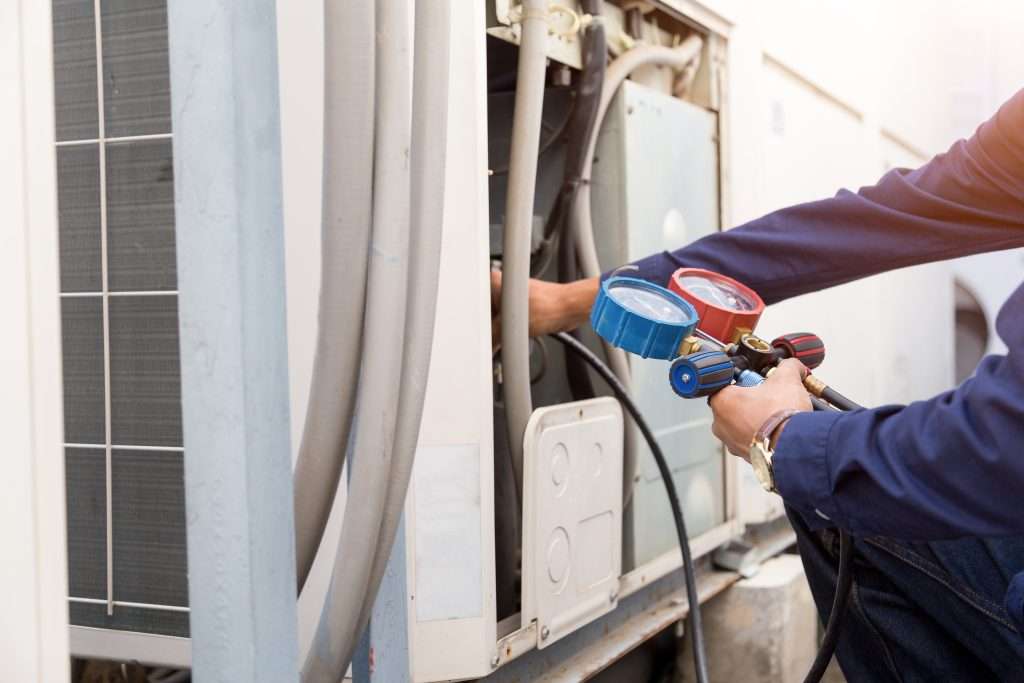
While it’s common to associate some scents with the onset of winter, persistent odors lasting more than a day or two could signal issues that need to be addressed. These issues could be caused by any number of factors, including:
Cracked Heat Exchanger
Characterized by an electric burning smell, yellow burner flame, or water pooling around the furnace, a cracked heat exchanger can leak carbon monoxide into your living spaces. Deadly in large concentrations, a carbon monoxide leak should be repaired immediately.
Exhausted Blower Motor
Dirty condenser coils, clogged air filters, or damaged air ducts can cause your blower motor to fail and your furnace to overheat.
Debris-Filled Furnace Filter
Dust, pet dander, and other contaminants can get trapped in the furnace, clogging its filter. To remedy the issue, replace air filters at least every three months.
Burnt Electrical Wires
That burning smell might have been caused by damaged wires, incorrect positioning, or some sort of physical impact. If left unattended, this issue can result in a house fire, making professional HVAC repair critical in these situations.
What is Dirty Sock Syndrome?
Despite its unusual name, Dirty Sock Syndrome is a serious issue that can significantly affect your HVAC system and threaten your physical health.
Here’s what you need to know:
- Cause: Buildup of mold, dirt, and dust on the evaporator coil and air ducts
- Impact: When heat is turned on, these particles are blown through your home, creating an unpleasant odor similar to dirty socks
- Concerns:
- Reduced air quality
- Potential allergy triggers
- Dispersal of accumulated particles throughout your home
When to Worry
The dirty sock odor should dissipate after 30-45 minutes of running your heat. If the smell is persistent odor and doesn’t go away, swift action is required. Turn off your heat and call a professional furnace maintenance service immediately.
How Can I Prevent DirtySock Syndrome?
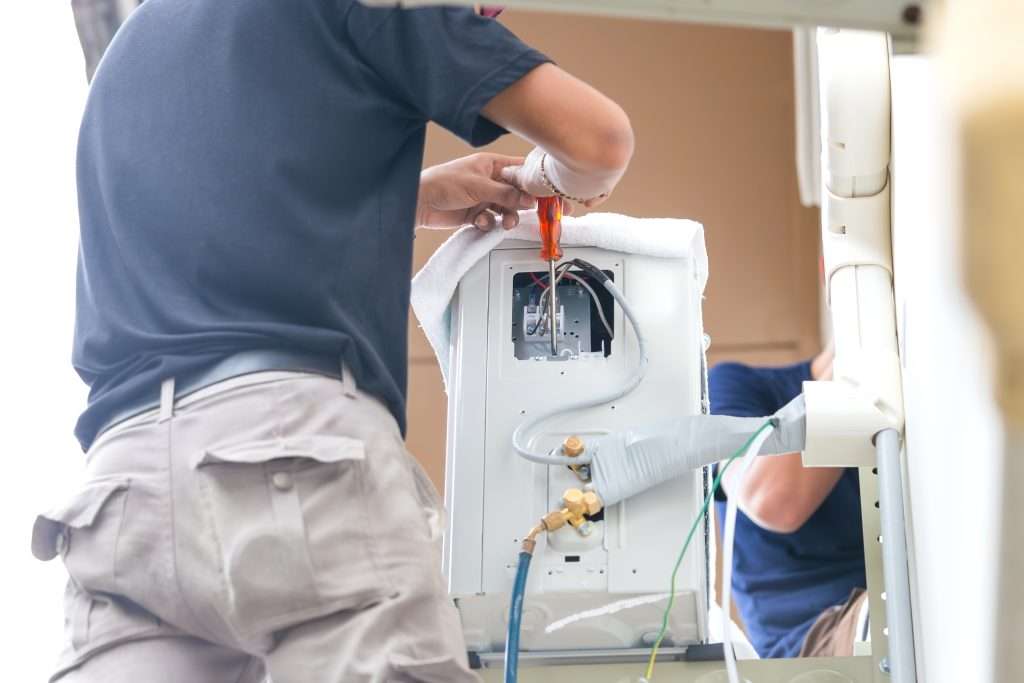
Preventing Dirty Sock Syndrome requires proactive maintenance of your HVAC system:
- Regular Filter Changes:
- Replace filters every 1-3 months to reduce dirt and dust accumulation on evaporator coils
- Professional Cleaning:
- Schedule regular cleaning of coils and air ducts by HVAC professionals
- Preventative Maintenance:
- Regular check-ups can catch issues before they become problems
- Helps ensure the issue doesn’t recur season to season
- Duct Cleaning:
- Periodic duct cleaning removes accumulated dust and debris
- Address Moisture Issues:
- Ensure proper drainage and address any leaks to prevent mold growth
Pro tip: while some maintenance can be done yourself, it’s often best to rely on professional HVAC services for thorough cleaning and inspection to maintain optimal air quality in your home.
When Will the Burning Odor Go Away?
The burning smell from your furnace typically dissipates within a couple of hours once the dust has burned off the heating elements within your unit. However, in some cases, it may linger for a day, depending on the amount of accumulated dust. If the odor becomes overwhelming, open your windows to help it dissipate, but keep the heater running to expedite the process.
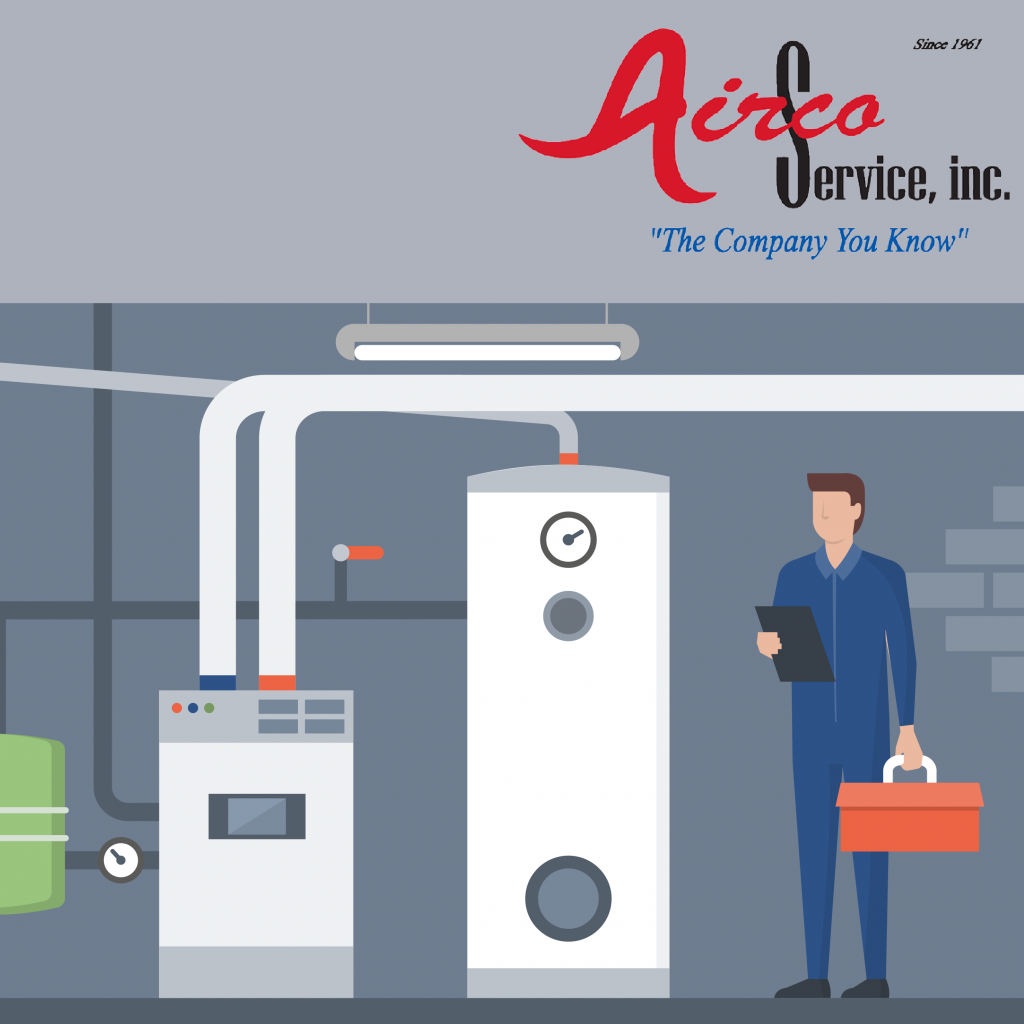
Furnace Safety Tips
- Avoid storing combustible materials — such as cleaning agents — near your furnace.
- The area surrounding your furnace should remain clean and tidy. Don’t store any of your belongings against the unit itself.
- Replace your air filter regularly. If your system uses a permanent air filter, clean it with warm, running water on a routine basis — 2-3 times a year.
- Make sure your carbon monoxide detectors and smoke alarms are working, especially before turning the heater on for the first time in the fall.
- If, after testing them, your smoke alarms or carbon monoxide detectors sound off after powering on your furnace, leave your home and contact the fire department for assistance.
- Schedule routine furnace maintenance with a licensed professional.
Can Turning the Heat On Cause a Fire?
While modern heating systems are designed with safety features, certain circumstances can increase fire risk when turning on the heat.
Some of these risks include:
- Malfunctioning or faulty heating equipment
- Combustible materials near heating sources
- Blocked or restricted ventilation
- Human error
Give Us a Call Today for Help With Furnace Maintenance
If you turn on your furnace only to have your home comfort overshadowed by a persistent burning smell, contact Airco Service before it’s too late. With multiple locations across Oklahoma and Arkansas, relief is closer than ever.
Although you may do an excellent job caring for your furnace, you may miss a few underlying issues that only professionals can identify. To prolong your system’s lifespan, you should schedule furnace maintenance at least once a year.
Fill out our convenient online contact form and schedule your service appointment today!


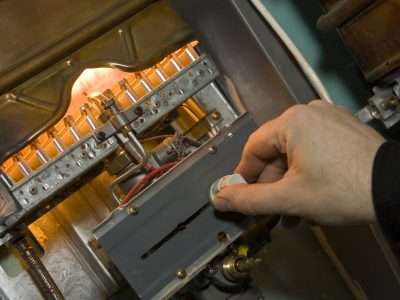
 Fast and Reliable Techniques to Clear a Bathroom Sink Drain
Fast and Reliable Techniques to Clear a Bathroom Sink Drain